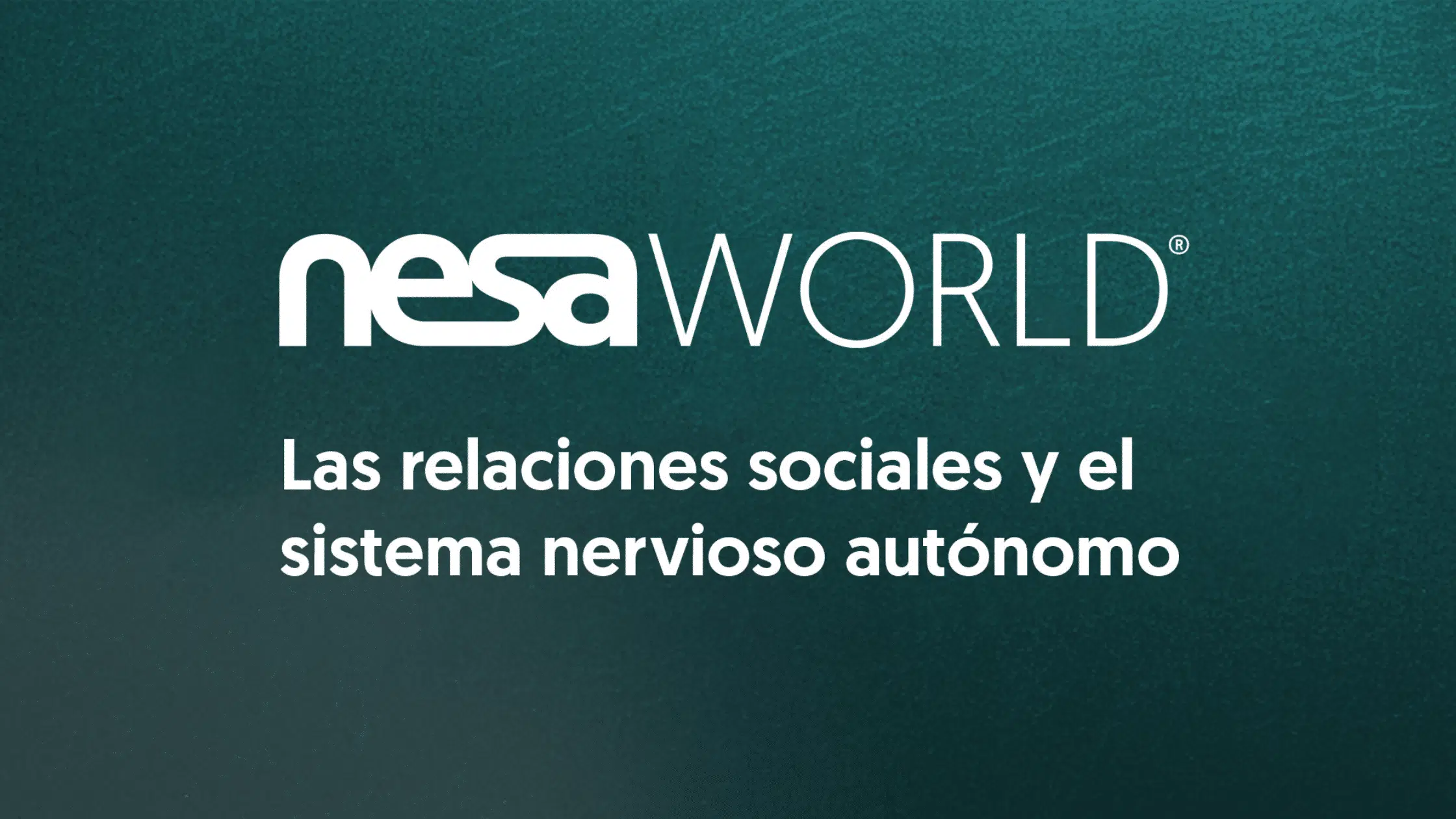Blog
Le mouvement qui transforme des vies

26-12-2023
Social relations and the autonomic nervous system
We are immersed in the Christmas season. That time of the year when the big family gatherings around a table come together. These are days when social relations are the protagonists and have the power to have an impact on the wellbeing of the autonomic nervous system. Expected reunions that once again show that, no matter how we feel, we are social beings. Social beings in spite of everything. Read on, you'll understand.
The digital era and its impact on social interactions
We live in the digital age and, as a consequence, we are increasingly connected through electronic devices to social networks. We greet our WhatsApp groups in the morning with avatars made in our image and likeness, we are able to hold a conversation with emoticons alone and the thumbs on our hands have become a fundamental tool in our daily communication. If we go further, we can say that birthday calls are becoming less and less popular. We no longer talk about a date. We send the honoured person off with a message, and if it can be an audio message, all the better. Sometimes, with a simple reaction to a story on Instagram, we have to consider ourselves congratulated. This economy of affection isolates and distances us while we are supposedly more connected than ever. As we immerse ourselves in this digitalised world, we neglect an essential part of our existence: social relationships. These relationships, when healthy, not only play a vital role in our happiness and emotional well-being, but also have a profound impact on our autonomic nervous system. This system controls automatic bodily functions such as heart rate, breathing and digestion. Not surprisingly, just a few weeks ago a study was published by the University of Granada which states that ‘we are not addicted to the mobile phone, but to the social interaction that this electronic device allows us’. This is the first experimental scientific evidence of this theory, which was developed by Professor Samuel P.L. Veissière, a researcher at McGill University in Montreal, Canada, in 2018. How do you stay? But why are social relationships so important for the health of the autonomic nervous system? We tell you.
Disconnected people at a Christmas dinner
The autonomic nervous system and social relations
The autonomic nervous system is a fundamental part of our body that regulates internal functions without us having to consciously think about them. It is composed of two main branches: the sympathetic nervous system and the parasympathetic nervous system. The former is activated in stressful situations, while the latter promotes relaxation and recovery.
It is precisely in the parasympathetic nervous system that social relationships come into play, as long as they are relationships that bring us well-being. Positive and rewarding social interactions can directly influence the activity of these two branches of the autonomic nervous system. Human beings have been social animals by nature since ancient times. The need for connection and belonging to a group is an innate characteristic of our species. Social relationships give us a sense of identity and belonging to a community, which in turn strengthens our self-esteem and self-confidence. This is why they are so important for our autonomic nervous system.
Benefits of social relationships for the autonomic nervous system
But what are the benefits of cultivating good social relationships? Take note:
- Stress reduction. When we share happy moments with friends and loved ones, our parasympathetic nervous system is activated, leading to a slower heart rate and muscle relaxation. This counteracts the sympathetic nervous system response, which is triggered in stressful situations. Thus, social relationships can act as a natural buffer against chronic stress, which can have detrimental effects on health.
- Emotional Regulation: Communication and interaction with people we trust can help us regulate our emotions. Talking about worries, fears or joys with someone close to us can help us regulate ourselves emotionally. These are called vitamin people.
- Improved mental health: The quality of our social relationships also influences the production of hormones such as oxytocin and serotonin, which are related to emotional well-being. The feeling of social support and belonging can increase the release of these hormones, improving our overall mental health.
- Personal development: Social relationships also play a key role in personal development. Through our interactions with others, we learn to communicate, resolve conflicts and develop interpersonal skills. These skills are essential in both personal and professional settings.
In short, social relationships are fundamental to human well-being and have a direct influence on the autonomic nervous system. Maintaining healthy and meaningful relationships is essential to balance this system, reduce stress and promote better emotional and mental health. For this reason and much more, we feel it is essential to remember that, during the holiday season and at any time of the year, nurturing our social connections is critical to staying healthy and happy.
Tips to take care of social relations and our autonomic nervous system
Before we go, here are some tips to ensure that your social relations during this time of year are as healthy as possible. Let's start:
- Disconnect digitally: During the holidays, try to reduce your time on electronic devices and social media. This will allow you to be more present in your personal relationships and reduce the sympathetic nervous system stimulation associated with excessive technology use.
- Encourage face-to-face communication: Instead of sending generalised messages, WhatsApp audios or Christmas memes, try talking in person or making video calls with friends and family. Eye contact and direct communication strengthen emotional ties. Imagine meeting up with that special person who brings you so much, and toasting to life at a Christmas get-together during these days. Now that's happiness.
- Practice empathy: We recognise that this tip is one of the most difficult to implement, but in the long run, it is the one that can give you the most satisfaction. During family gatherings, it is important to practice empathy and understanding. We are all different, and tensions can arise when you least expect them. There is always something that lights the fuse. Active listening and empathy can help maintain peace and emotional balance. Again, not easy, but very healthy.
- Set boundaries: If even with implementing the above advice, something is still not flowing, don't feel obligated to participate in all the social activities of the holiday season. Setting boundaries and taking time to rest and recharge is essential to maintaining a balanced autonomic nervous system.
Finding a healthy balance in an increasingly digitised world
Maintaining a healthy balance between virtual interactions and real social relationships, especially during the holiday season, can be a challenge these days. A challenge we take on with the knowledge that achieving it is essential for our mental and emotional health in an increasingly digitalised world.










